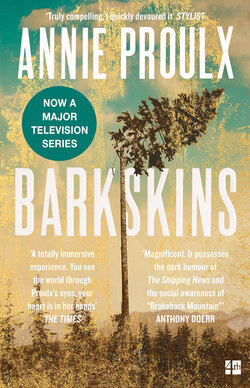Читать книгу Barkskins - Энни Пру, Annie Proulx - Страница 22
14 risk
ОглавлениеOn the home voyage some of the sailors refused to drink the scurvy-preventing lemon juice and threw the mangoes overboard (as they had the oranges and bok choy) when they thought they were unobserved. Those who were caught had the choice of sucking two lemons dry or enduring ten lashes. Most chose the lashes, for they believed that salt meat, hardtack and cheese so stale and granitic they had to be cut with an ax were manly foods suited to sailors. Lemons were not well regarded. Captain Verdwijnen smiled and said he hoped they would enjoy their scurvy. And soon enough those men began to move stiffly, leaving bloodstains on their hardtack, bending double with gut-ripping pains. There was great laughter one day and Toppunt, seeking the cause, found one of the lemon haters staring at his ration of hardtack. He had tried to gnaw it and it came away from his mouth bloodied and with three teeth embedded in it. Now the voyage seemed interminable but Captain Verdwijnen made one more stop.
The ship made port at Ghana, picked up thirty slaves and crowded them into the cargo hold with the crates of porcelain, the rare plants and the chest of Patna. There was not a cat’s whisker of free space on the vessel. In the dark hold the slaves got at the contents of the opium chest, a fortuitous find which greatly eased their passage. They found and ate the rare plants, blossom, leaf, stem, root and soil. It was only when they sighted France that the loss was discovered.
Captain Verdwijnen, when he had recovered from his shock, drinking his evening jenever put a question to Duquet.
“So, my friend, what think you the value of those slaves now?”
Duquet thought before he answered. The affair had its comic side but he would keep his smiles to himself.
“To you, they must have a very high value, for when you add up the cost of the slaves themselves, then cipher in what you paid for the plants and the opium, they become precious, likely far above the market price for slaves.”
“Quite so,” said Verdwijnen. “But. It is more complicated than that. For neither the plants nor the opium have fixed prices that are the same everywhere. What amount might I have received for the opium, which is an expensive and desirable medicine? And what if some of the plants soared in value as tulips did in my grandfather’s time? Should those estimated future prices be factored into the value of the slaves? And what about the slave buyer? He would see only a slave, not the opium and rare orchids the creatures ingested. To him, the value is the slave-market price.”
He thought a moment, then went on. “The slaves, opium and plants were mine. That’s all.”
“But do you not hold marine insurance for this trip? With the men in the coffeehouse in La Rochelle?”
“That, too, is complicated. Of course Herr Grinz’s ship was insured by the coffeehouse men against loss, piracy and wreck, and also his cargo of silk and tea, but the rest … no. Piet, Jan and I are self-insured through our partenrederijen, so the risks fall equally on all of us. Piet and Jan own their ships—I alone had to hire out to Herr Grinz. They will share my losses and I will share their profits.”
Duquet nodded. The motion of the ship was very slight as they were passing through slick water in which long windrows of seaweed made a pattern like a gigantic tweed cloak. He felt slight sympathy for Captain Outger Verdwijnen, who had made a negligible profit from the long, perilous journey, very little to show for all his bargaining and diplomatic skills. Unexpected dangers in business were part of the game. Captain Verdwijnen gave a hard laugh and said, “It’s always a risk, such a voyage. We might easily have lost the ship and all its contents, we might have lost our lives, we might have been captured by pirates and sold as slaves ourselves. I look on the pleasant side. We have evaded cyclones and pirates. I still have Margit’s little table—and I still have the slaves. I’ll get something for them, so in the end it is only the opium and the rare plants that I have lost. In any case we Dutch do not mind taking a risk. If business and enterprise is a fruit, we understand risk is its inner kernel.” He stretched his legs and half-smiled. “Besides, I also placed some bets at the coffeehouse before we sailed that the ship would not wreck, that we would dodge pirates, and that I would return very much alive and twice as clever. There is my profit.”
And so they returned to France, where the Steenarend would stay for three weeks, Duquet chafing to see the new finery which would present him as a person of value and importance.
